Now this thing is a true flying wing. Having no vertical stabilizers whatsoever on or inside of it, it's purely stabilized by air brakes controlled with yaw (Hint hint facking use yaw, and trim all the way down)
Something to note is this is for a challenge. Yep, a challenge, I like them.
Lastly, be careful with rolling. She doesn't have vertical stabilizers, so yaw in the direction you're rolling. Don't over do it either, or she'll flat spin.
The Li P.480 B-3, nicknamed the "Nachtriese" by those who worked and flew it. The P.480 was designed by Alexander Lippisch early 1941, and was finally completed and revealed to the RLM mid-1944 for construction by Messerschmitt. The first prototype was a wooden mock-up built late 1943, and the second, full sized metal prototype built a month after Messerschimtt recieved the design for mass production.
After the protoypes were developed and built, the RLM ordered a night fighter variant to be built alongside the original version.
A FuG 220 Lichtenstein SN-2 radar was to be fitted into the nose, as well as a small, unpowered propeller below it to assist in powering electronics inside the cockpit.
Alongside with the radar, a third crew member was added to man said radar, and act as a mechanic for the night fighter.
One of the largest changes from the B-3 variant and the others was the addition of the HE S 011 engine alongside the Daimler-Benz DB 632 engines, both having a added drive for the contra rotating propellers.
Only one of the B-3 variants were produced before the Messerschmitt factory was either bombed, or captured by advancing Allied forces. Only three P.480's of any variant were produced, two of the B-1 variant, and one of the B-3 variant.
With the three built, they were set into their own Staffel (Was supplemented by either 5 Ta-152's, or 3 Bf 110's) of the Luftwaffe in Luftflotte Reich.
The B-3 flew usually with Do-217s from other Staffels during bomber raids while the B-1 variants flew together with the their Staffel during daytime bombing raids.
The B-1 variants faired well during their short time of service, downing several bombers before one being shot down, and the other being destroyed in it's hanger by crew.
The B-3 variant flew for longer than the B-1's, all the way to the end of the war. It downed several bombers (believed to of been at least twelve bombers of varrying types) before being captured by Soviet forces. The fate of the B-3 is unknown, and those who maintained it disappeared under the Soviets.
Literally the only control:
AG1 - Drop payload of Fritz X
Specifications
General Characteristics
- Predecessor Large Fighter challange closed
- Created On Android
- Wingspan 106.2ft (32.4m)
- Length 46.3ft (14.1m)
- Height 16.8ft (5.1m)
- Empty Weight 36,023lbs (16,339kg)
- Loaded Weight 83,857lbs (38,037kg)
Performance
- Power/Weight Ratio 0.133
- Horse Power/Weight Ratio 0.193
- Wing Loading 77.9lbs/ft2 (380.5kg/m2)
- Wing Area 1,076.0ft2 (100.0m2)
- Drag Points 25935
Parts
- Number of Parts 175
- Control Surfaces 4
- Performance Cost 763

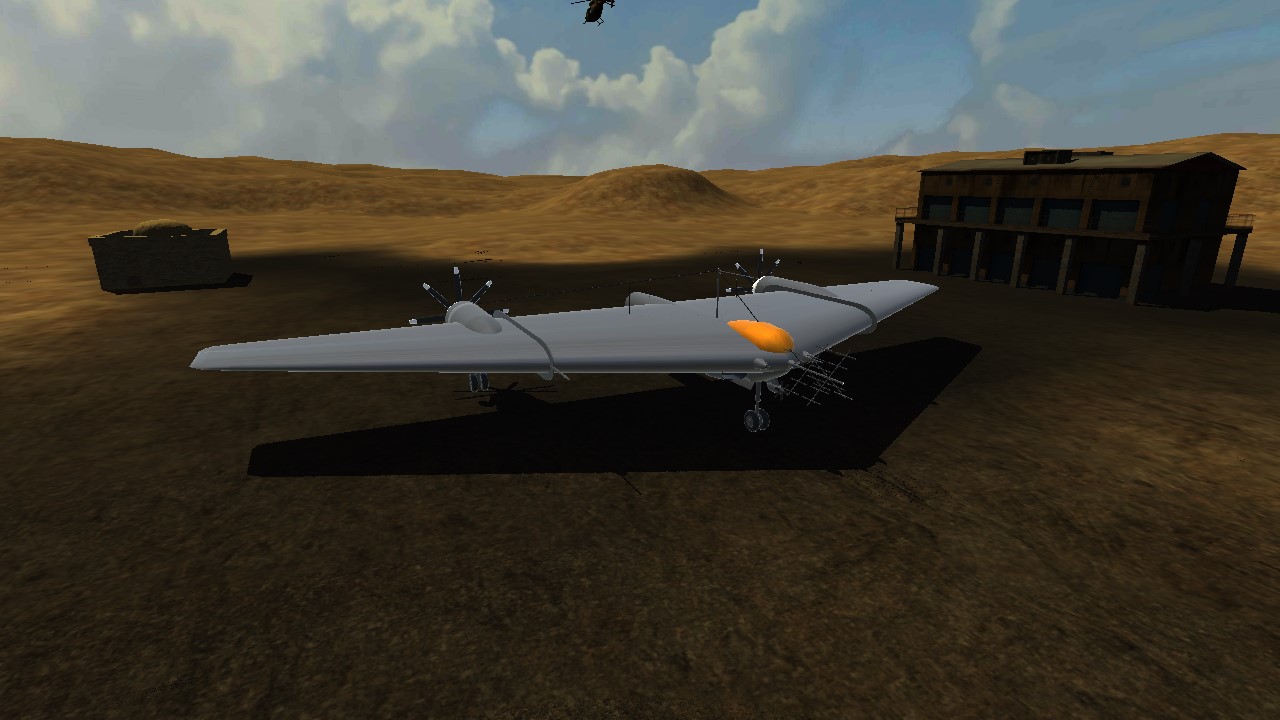
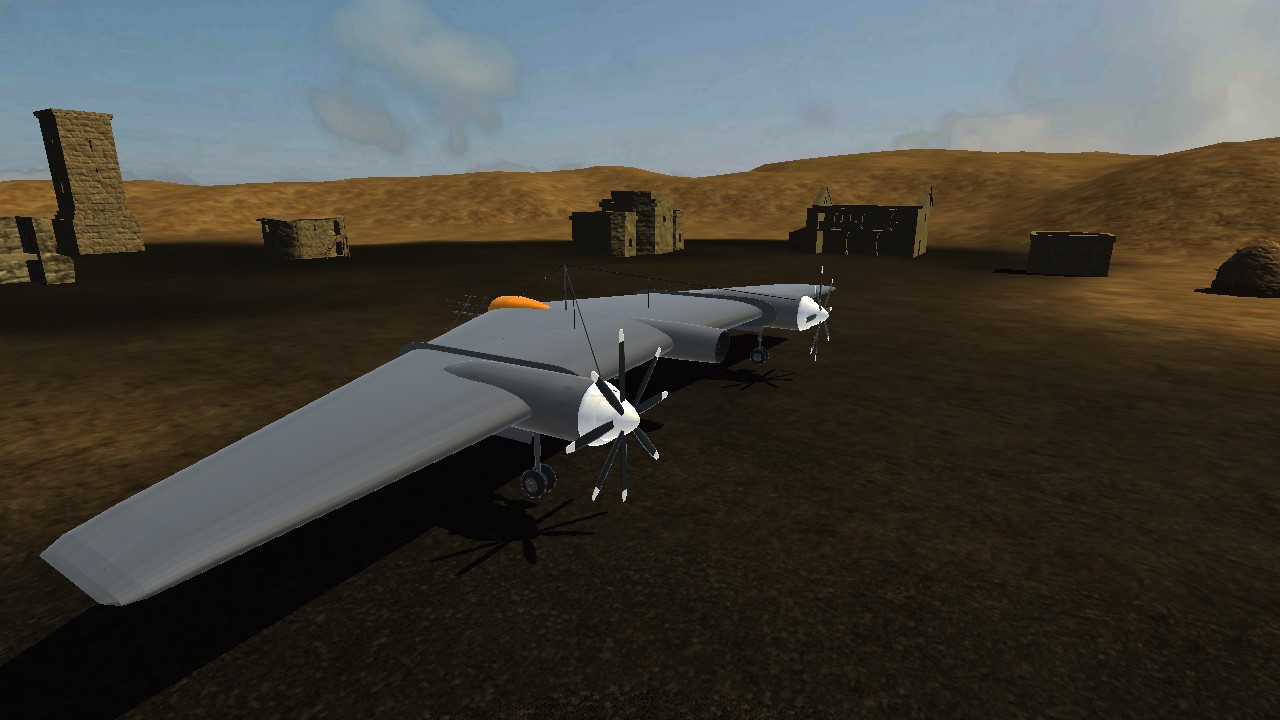
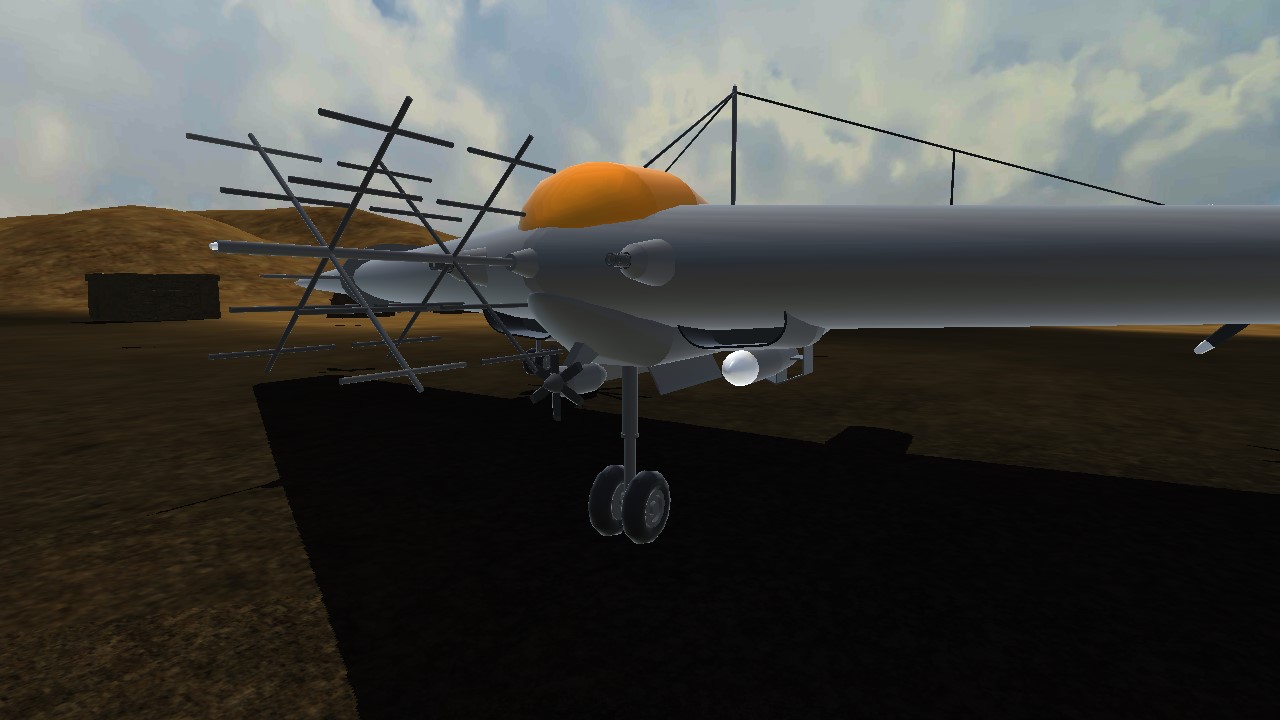
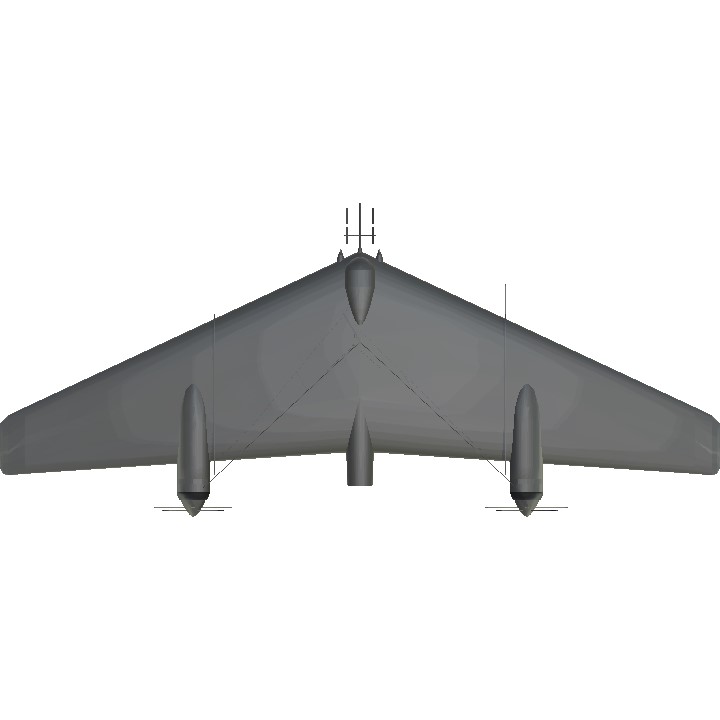
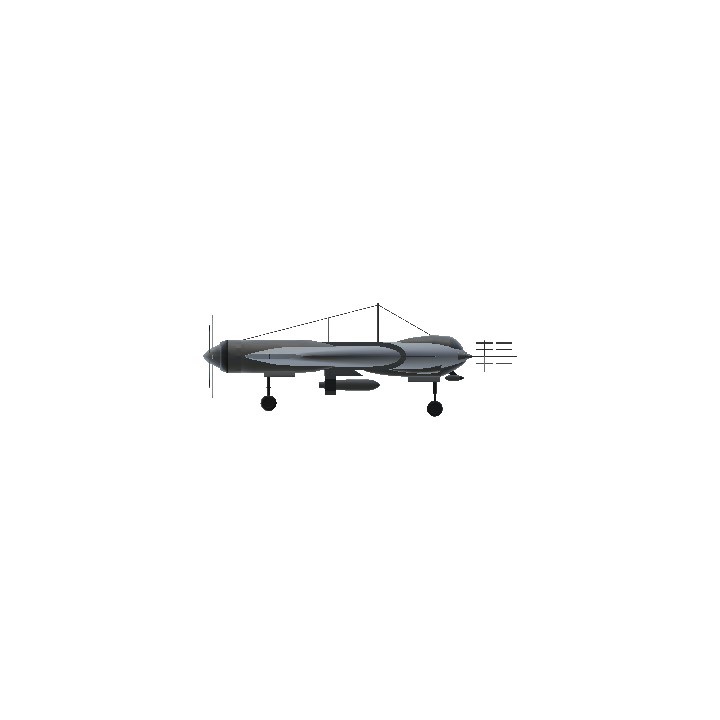

(upvote)
Danke!
@Fjorge
Cool!
@MrVaultech np!
Danke!
@phanps
Interesting back story as well
Hahaha very splendid!
Umm... it's supposed to lose that much fuel. It's two massive engines, and a massive jet engine in there.
@P1xeL86
Excuse me, but do not tell me what to do, so that the fuel in the plane is spent slowly?